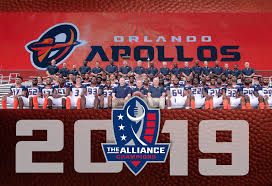
olympic sports basketball
In the realm of olympic sports basketball, few activities capture the essence of teamwork, athleticism, and strategic prowess quite like basketball. This exhilarating sport has evolved significantly over the years, becoming an integral part of the Olympic Games and showcasing the world’s best talent on a global stage. The competition not only celebrates individual skill but also emphasizes the spirit of camaraderie and national pride.
The following sections will delve into various aspects of Olympic sports basketball, tracing its rich history, analyzing its rules and gameplay, exploring the cultural impact it has had around the globe, examining its evolution throughout the Olympics, and highlighting key players who have left an indelible mark on this sport.
The Historical Journey of olympic sports basketball
Basketball’s inception can be traced back to 1891 when Dr. James Naismith invented the game as a means to keep students engaged during winter at a YMCA in Springfield, Massachusetts. The sport quickly gained traction, leading to its inclusion in the Olympic Games.
Readmore: Link Vào XIN88
The Early Years: From Inception to Olympic Inclusion
Initially played as a recreational activity, basketball’s rise to prominence was meteoric. By the early 1900s, it captured the attention of athletes worldwide.
Dr. Naismith’s simple objective—throwing a ball into a peach basket—has since transformed into one of the most complex and fast-paced sports. As the game expanded, so did its appeal, paving the way for its official debut as an olympic sports basketball in 1936 at the Berlin Games.
At that time, basketball was limited to men’s teams, with a tournament format that featured eight nations vying for a gold medal. The United States emerged victorious, a trend that would continue for decades. Women’s basketball later joined the Olympic fray, making its debut at the Los Angeles Games in 1984. This addition marked a significant milestone, acknowledging the increasing participation of women in sports and providing them with a platform to showcase their talents.
Evolution Through the Decades
Throughout the subsequent decades, olympic sports basketball witnessed tremendous changes in both its structure and style. The introduction of professional players into the Olympic framework fundamentally altered the competitive landscape.
The “Dream Team,” comprising NBA superstars, made its historic debut at the Barcelona Olympics in 1992. This exceptional squad not only dominated the competition but also revolutionized how basketball was perceived globally. The combination of unparalleled skill and charisma drew international audiences, ultimately elevating the popularity of the sport.
As the years progressed, basketball became more than just a game; it transformed into a cultural phenomenon. The infusion of hip-hop music, fashion, and urban culture contributed to the sport’s identity, attracting new fans from diverse backgrounds. The Olympics provided a unique stage where this cultural fusion could flourish amidst fierce competition.
Iconic Moments in Olympic Basketball History
Several moments in olympic sports basketball history stand out, solidifying the sport’s legacy. One such moment was the U.S. men’s basketball team’s shocking defeat to the Soviet Union in the 1972 Munich Games. The dramatic finish and controversy surrounding the final seconds of the game underscored the intense rivalry between the two nations during the Cold War.
Another unforgettable highlight came in 2008 when the U.S. men’s team faced off against Spain in a nail-biting gold medal match at the Beijing Olympics. The world watched as both teams displayed remarkable skill and tenacity, ultimately culminating in a thrilling victory for the USA. These iconic games forged lasting memories for athletes and fans alike, transcending mere athletic achievement and becoming part of sporting folklore.





